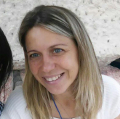Studying at the University of Verona
Here you can find information on the organisational aspects of the Programme, lecture timetables, learning activities and useful contact details for your time at the University, from enrolment to graduation.
Academic calendar
The academic calendar shows the deadlines and scheduled events that are relevant to students, teaching and technical-administrative staff of the University. Public holidays and University closures are also indicated. The academic year normally begins on 1 October each year and ends on 30 September of the following year.
Course calendar
The Academic Calendar sets out the degree programme lecture and exam timetables, as well as the relevant university closure dates..
| Period | From | To |
|---|---|---|
| I semestre | Oct 1, 2018 | Jan 31, 2019 |
| II semestre | Mar 4, 2019 | Jun 14, 2019 |
| Session | From | To |
|---|---|---|
| Sessione invernale d'esame | Feb 1, 2019 | Feb 28, 2019 |
| Sessione estiva d'esame | Jun 17, 2019 | Jul 31, 2019 |
| Sessione autunnale d'esame | Sep 2, 2019 | Sep 30, 2019 |
| Session | From | To |
|---|---|---|
| Sessione estiva | Jul 16, 2019 | Jul 16, 2019 |
| Sessione autunnale | Nov 19, 2019 | Nov 19, 2019 |
| Sessione invernale | Mar 11, 2020 | Mar 11, 2020 |
| Period | From | To |
|---|---|---|
| Sospensione attività didattica | Nov 2, 2018 | Nov 3, 2018 |
| Vacanze di Natale | Dec 24, 2018 | Jan 6, 2019 |
| Vacanze di Pasqua | Apr 19, 2019 | Apr 28, 2019 |
| Vacanze estive | Aug 5, 2019 | Aug 18, 2019 |
Exam calendar
Exam dates and rounds are managed by the relevant Science and Engineering Teaching and Student Services Unit.
To view all the exam sessions available, please use the Exam dashboard on ESSE3.
If you forgot your login details or have problems logging in, please contact the relevant IT HelpDesk, or check the login details recovery web page.
Academic staff
 rossana.capuani@univr.it
rossana.capuani@univr.it
 vittoria.cozza@univr.it
vittoria.cozza@univr.it
 luca.pasetto@univr.it
luca.pasetto@univr.it
 claudio.tomazzoli@univr.it
claudio.tomazzoli@univr.it
 franco.zivcovich@univr.it
franco.zivcovich@univr.it
Study Plan
The Study Plan includes all modules, teaching and learning activities that each student will need to undertake during their time at the University.
Please select your Study Plan based on your enrollment year.
1° Year
| Modules | Credits | TAF | SSD |
|---|
2° Year activated in the A.Y. 2019/2020
| Modules | Credits | TAF | SSD |
|---|
3° Year activated in the A.Y. 2020/2021
| Modules | Credits | TAF | SSD |
|---|
Un insegnamento a scelta1 module to be chosen among the following| Modules | Credits | TAF | SSD |
|---|
| Modules | Credits | TAF | SSD |
|---|
| Modules | Credits | TAF | SSD |
|---|
Un insegnamento a scelta1 module to be chosen among the followingLegend | Type of training activity (TTA)
TAF (Type of Educational Activity) All courses and activities are classified into different types of educational activities, indicated by a letter.
Physiology of higher plants (2020/2021)
Teaching code
4S003258
Teacher
Coordinator
Credits
6
Language
Italian
Scientific Disciplinary Sector (SSD)
BIO/04 - PLANT PHYSIOLOGY
Period
I semestre dal Oct 1, 2020 al Jan 29, 2021.
Learning outcomes
The objective of the course is the acquisition of the theoretical fundamentals of plant physiology.
After attending the course, the students will be able to understand the principal plant metabolic processes and the physiological and molecular mechanisms regulating growth and development, and response to the environment.
Program
Water transport in plants: chemical properties of water, mechanisms of water transport.
Water balance of plants: movement of water in the soil, water absorption by roots, water transport through the xylem, transpiration and stomatal movements, control of stomatal opening. Water stress: physiological responses to drought.
Mineral nutrition: the essential mineral nutrients, transport of mineral ions across membranes, membrane transport proteins, effects of mineral deficiencies.
Photosynthesis: the light reactions: general concepts , the photosynthetic apparatus, light absorption, electron transport and ATP synthesis. The Calvin-Benson cycle and its regulation. Photorespiration. C4 and CAM metabolisms. Starch and sucrose synthesis and hydrolysis.
Translocation in the phloem: the sink-source concept, phloem loading and unloading, allocation and partitioning of phosynthates.
Respiration: general concepts and unique features of respiratory metabolism in plants
Assimilation of nitrogen, sulphur and phosphate. Biological nitrogen fixation.
Plant growth and development: signal transduction in plants, cell division and cell expansion, embryogenesis, meristematic tissues, plant life cycles.
Photoresponses: phytochrome, phytochrome-induced responses and molecular mechanisms. Blu-light responses and photoreceptors.
Phytohormones: biosynthesis, physiological effects and molecular modes of action of auxin, cytokinin, gibberellins, ethylene, abscisic acid , brassinosteroids, polyamines, jasmonic acid.
Examples of genetic engineering applications to crop improvement.
| Author | Title | Publishing house | Year | ISBN | Notes |
|---|---|---|---|---|---|
| Taiz L. e Zeiger E. | Fisiologia Vegetale | Piccin-Nuova Libraria | 9788829921577 |
Examination Methods
The exam will ascertain:
Students’ knowledge on the topics of the lectures;
The language accuracy used to communicate the knowledge acquired;
The ability to link the knowledge acquired to potential biotechnological applications
For both attending and non-attending students, the oral examination will concern the topics discussed in the lessons and covered in the text book.
Type D and Type F activities
Modules not yet included
Career prospects
Module/Programme news
News for students
There you will find information, resources and services useful during your time at the University (Student’s exam record, your study plan on ESSE3, Distance Learning courses, university email account, office forms, administrative procedures, etc.). You can log into MyUnivr with your GIA login details: only in this way will you be able to receive notification of all the notices from your teachers and your secretariat via email and also via the Univr app.
Graduation
List of thesis proposals
| theses proposals | Research area |
|---|---|
| Studio delle proprietà di luminescenza di lantanidi in matrici proteiche | Synthetic Chemistry and Materials: Materials synthesis, structure-properties relations, functional and advanced materials, molecular architecture, organic chemistry - Colloid chemistry |
| Multifunctional organic-inorganic hybrid nanomaterials for applications in Biotechnology and Green Chemistry | Synthetic Chemistry and Materials: Materials synthesis, structure-properties relations, functional and advanced materials, molecular architecture, organic chemistry - New materials: oxides, alloys, composite, organic-inorganic hybrid, nanoparticles |
| Dinamiche della metilazione del DNA e loro contributo durante il processo di maturazione della bacca di vite. | Various topics |
| Il problema della donazione degli organi | Various topics |
| Risposte trascrittomiche a sollecitazioni ambientali in vite | Various topics |
| Studio delle basi genomico-funzionali del processo di embriogenesi somatica in vite | Various topics |
Attendance modes and venues
As stated in the Didactic Regulations, there is no generalised obligation of attendance. Individual lecturers are, however, free to require a minimum number of hours of attendance for eligibilitỳ for the profit exam of the teaching they teach. In such cases, attendance of teaching activities is monitored in accordance with procedures communicated in advance to students.
Part-time enrolment is permitted. Find out more on the Part-time enrolment possibilities page.
The course's teaching activities take place in the Science and Engineering area, which is composed of the buildings of Ca‘ Vignal 1, Ca’ Vignal 2, Ca' Vignal 3 and Piramide, located in the Borgo Roma cluster, and Villa Lebrecht and Villa Eugenia located in the San Floriano di Valpolicella cluster.
Lectures are held in the classrooms of Ca‘ Vignal 1, Ca’ Vignal 2 and Ca' Vignal 3, while practical exercises take place in the teaching laboratories dedicated to the various activities.

 +39 045 802 7949
+39 045 802 7949
